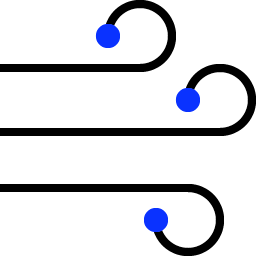
Discoveries in Safety Grants
Supporting research to make the world a safer place
The Discoveries in Safety Grants program supports innovative research aligned with our mission to address critical safety challenges. Through an open and competitive process, researchers can apply for funding of up to $200,000 per year for up to three years. Applications for the 2026 grant cycle are closed. Sign up to receive the latest updates about the Discoveries in Safety Grants program.
View terms and conditions for the Discoveries in Safety Grants program here.
Focus areas for the 2026 grant cycle include:

Focus Area 1
Improved respiratory protection options for first responders under toxic smoke conditions

Focus Area 2
Improved recycling technologies to recover critical minerals from energy storage devices
Applications for the 2026 grant cycle are closed.

Focus Area 1
Improved respiratory protection options for first responders under toxic smoke conditions
Problem statement: When responding to fires at the wildland-urban interface (WUI), emergency personnel are typically exposed to high levels of smoke that can include toxic components generated from the burning of anthropogenic materials and biomass. Traditional respiratory protection devices do not provide sufficient filtering capabilities to gases and particulate, place a significant metabolic burden on the firefighter, and/or do not withstand the extreme environment and use of WUI firefighting responses. Evaluation of emerging respiratory protection devices is necessary to understand the impact on the firefighter and feasibility of implementation. Improved technologies may be needed to develop devices which address these challenges and adequately protect individuals under WUI fire conditions.
Areas of interest: Assessment of respirator feasibility for use in WUI fire responses: 1) characterization of the physiological, ergonomic, and metabolic impact of performing firefighting operations, 2) quantification of protection during and following exposure to combustion products (such as assessment of biomarkers or markers of effect in WUI firefighters), 3) evaluation of adoption and implementation by the fire service. Technologies that demonstrate high levels of protection against WUI smoke hazards while minimizing physical stress for individuals deploying the technology. Filters that go beyond absorption/adsorption to catalytically react and detoxify specific hazards. Integration of emerging technologies into respirators that are feasible for the fire service.

Focus Area 2
Improved recycling technologies to recover critical minerals from energy storage devices
Problem statement: Energy-storage technologies make use of a spectrum of critical minerals (elements) for various use cases, including alkali metals, transition metals, and rare earths. Current recycling technologies leave considerable room for improvement with respect to a long-term goal of strong circularity. Recycling technologies themselves must be designed to be cost-effective with minimal environmental impact.
Areas of interest: Innovations targeting any step in the recycling process for energy-storage technologies covering a spectrum of use cases.

Focus Area 3
Characterization of chemical emissions and residual ash from wildland-urban interface (WUI) fires
Problem statement: Fires at the wildland-urban interface (WUI) are becoming more frequent and severe resulting in 1) airborne emissions that can expose large segments of the population and 2) residual ash that can be subject to re-suspension or runoff prior to cleanup. The chemical composition of the airborne emissions and residual ash from WUI fires are complex with contributions from biomass, building materials, and personal property and can vary with combustion conditions. While some of the chemical components of the WUI fire emissions and runoff have been characterized using both targeted and non-targeted analytical chemistry methods, additional data are needed to identify and monitor candidate chemicals of concern following WUI fire events.
Areas of interest: 1) Non-targeted chemical analysis of residual ash and runoff samples from historical WUI fire events. 2) Non-targeted chemical analysis of WUI fire emissions and residual ash from real-world incidents and/or simulated laboratory burns of different building materials and representative personal property.

Focus Area 4
Mineral fiber emission and transport characterization from wildland-urban interface (WUI) fires
Problem statement: With the changing climate, fires at the wildland-urban interface (WUI) are becoming more frequent and severe. Legacy contaminants in building materials and biomass include mineral fibers such as asbestos. Initial studies on entrained fibers in tree bark and forest duff suggested potential exposure to communities and emergency responders, but little is known about the emissions from legacy building materials and the atmospheric transport under extreme meteorology of a large WUI fire.
Areas of interest: 1) Mineral fiber emission profiles from asbestos containing building materials. 2) Atmospheric modeling and experimental measurements of the transport of mineral fibers under WUI fire conditions of different sizes and severities. 3) Experimental measurements of mineral fibers and their characteristics in residual ash from asbestos containing building materials.
Applications for the 2026 grant cycle are closed.
Frequently Asked Questions
Discoveries in Safety Grants fund research across a number of safety science focus areas, as directed by our institutes. These focus areas span chemical safety, digital safety, electrochemical safety, fire safety, materials discovery, and research experiences and education. Specific topic areas are announced through notices of funding opportunity at the beginning of each grant cycle.
Discoveries in Safety Grants are competitive grants that fund research up to $200,000 USD per year for up to three years. Grant funding is provided through cost-reimbursement. Please reference each grant’s notice of funding opportunity for more specific information on grant structure.
You can download the terms and conditions here.
Once notices of funding opportunity are released at the beginning of each grant cycle, applicants will be asked to submit a brief letter of intent (LOI) outlining their proposed research. LOIs will then be reviewed, and a selection of applicants will be invited to submit a full proposal. Invited applicants will then submit full proposals, which will be reviewed by a committee, and grantees will be selected.
Both letters of intent and full proposal submissions will be made through ProposalCentral. Additional submission instructions will accompany funding opportunity announcements, and any questions or technical issues utilizing the system should be directed to ProposalCentral’s support team.
Most Discoveries in Safety Grants are open to a wide range of research-conducting organizations, including institutions of higher education, non-profit, and for-profit organizations. However, please reference each grant’s notice of funding opportunity for more specific information on eligibility requirements.
Letters of intent (LOI) can be submitted upon announcement of each funding opportunity, prior to the LOI deadline described in the notice of funding opportunity (NOFO). Notification of acceptance and advancement to the full proposal stage of the application process will be provided before the start date of the full proposal application period. Any applicants who are not invited to submit a full proposal will be notified by email before the full proposal application period begins. Grantees will be selected and notified within approximately eight weeks following the full proposal deadline. Please see additional details on key dates listed in the NOFO.
Yes, a principal investigator may submit multiple applications addressing the different focus areas of a funding opportunity. However, only one application will be awarded per principal investigator.
Applicants cannot edit their applications after they have been submitted. If an issue occurs, such as an application component requiring an update, please contact the Office of Partnerships, Extramural Research, and Administration at partnerships@ul.org. A request to withdraw a proposal from consideration can be made at any time through ProposalCentral.
Letters of intent (LOI) will be reviewed by internal committees of UL Research Institutes researchers, while full proposals will be reviewed by both UL Research Institutes researchers and external reviewers. Acceptance or rejection of the LOI will be communicated to the principal investigator before the start date of the full proposal application period. Decisions on full proposals will be communicated to the principal investigator approximately eight weeks after the full proposal deadline.
Once grant recipients are announced, the grantee will be provided with the next steps in the process.
No, UL Research Institutes and its affiliates do not accept any legal obligation.
It is UL Research Institutes’ policy to cap the overhead costs charged by such organizations at 25% of modified total direct costs. Salaries, benefits, materials and supplies, travel, other services, and subawards are direct costs for which overhead may generally be charged. See the complete policy for direct cost eligibility.
Contact the Discoveries in Safety Grants team at partnerships@ul.org. You can also find this information in the “Contacts” section of the notice of funding opportunity. Any questions that are not submitted within the question period will be answered at the discretion of UL Research Institutes.
Please join our mailing list to be notified of future funding opportunities when they are announced. All future calls for proposals from UL Research Institutes will be posted on this page. UL Research Institutes will also notify institutions that have previously applied for a Discoveries in Safety Grants program grant about any future opportunities.
2023-2024 Discoveries in Safety Grants awardees
The projects of these 10 outstanding principal investigators and their research teams demonstrate exceptional innovation and potential for impact in their respective fields.
Zhu (Clark) Chen
University of Massachusetts Amherst
Project title: High-Throughput Discovery of Spinel Oxides for Natural Seawater Electrolysis
Oskar Grönlund
RISE Research Institutes of Sweden AB (RISE)
Project title: Early Detection of Thermal Runaway in Lithium-ion Batteries
Katy Hosbein
Middle Tennessee State University
Project title: Exploring Science Identity Development of First-Gen Students through Their Perceived Norms of STEM
Xin Hu
Emory University
Project title: Assessing the Safety and Quality of Synthetic and Plant-Derived CBD Personal Care Products
Mercouri Kanatzidis
Northwestern University
Project title: Metal Sulfide Sorbents for Sustainable Remediation of Industrial Wastes
Michael Pecht
University of Maryland
Project title: Strain Sensors for Early Detection of Gas Generation for Thermal Runaway Prevention
Jason Somarelli
Duke University
Project title: The Other Plastic Problem: Weathering and Plastic Additives Synergize to Impact Organisimal Health
Anna Stefanopoulou
University of Michigan
Project title: Robotic Gas Sensing System for Spatially Distributed Battery Safety
Svetlana Tretsiakova-McNally
University of Ulster
Project title: Investigation of Toxic Chemicals Transfer through Clothing Layers of Fire Suits
Andrea Weinberg
Arizona State University
Project title: Empowering Youth Action: Investigating Online Platforms for Climate Education
Stay in the Know
Sign Up for Updates
Receive the latest updates about the Discoveries in Safety Grants Program.
By submitting this form, I am opting in to receive communications from UL Research Institutes (ULRI) containing news and updates about its work and initiatives. I understand that I can manage my preferences at any time and agree to ULRI’s online policies.